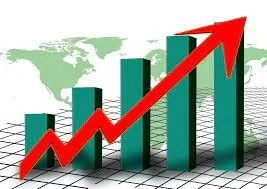Santo Domingo, DR.
There is no doubt: that inflation is the number one problem globally. Daughter of the pandemic, it was aggravated by the beginning of the conflict between Ukraine and Russia. Although many thought it would last for days or weeks, it has already completed five months of hostility, a humanitarian disaster with significant consequences for the West, through fuels and cereals. Add to that the already complicated supply chain picture.
This has impacted the margin of maneuver of the government of President Luis Abinader, pressured by a barrel of oil that has touched the $130 barrier and by inflation that has already exceeded double digits in many countries. However, fortunately, this is not our case. To get an idea, to prevent oil hikes from reaching the citizens’ pockets, the government has assumed the debt of the increases, absorbing, from January to June, almost 19 billion pesos.
Can you imagine for a moment not subsidizing fuels and letting society assume this? The answer to that assumption would have implied have affected the social peace and political stability of the Dominican Republic, which in turn would have impacted the economy, investments, job creation, and citizen security. Hence, this sacrifice has been well worth it. Nevertheless, with 19 billion subsidies, the margin for governmental achievements has been reduced, and the President has had to appeal for the permanent revision of public spending. For example, in recent days, salary increases and the hiring of new personnel were frozen, in addition to limitations on travel, extraordinary expenses, and everything extra for a context such as the current one, so that an economic surplus can be created to allow the allocation of all possible funds to prevent prices from skyrocketing and impacting the pockets of all Dominicans.
Without the global crisis, the country could have made progress in strategic works. For example, suppose we calculate that the cost per kilometer of highway or subway is US$ 447,000, considering the fuel and energy subsidies. In that case, the country could have today underway the construction of 80 more kilometers of subway line or its equivalent in highways.
Despite this, the government’s work is visible. On the social front, the president announced the allocation of a 1,500 peso subsidy for one million people, alleviating the overall economic burden that hangs over them. In addition, it was agreed to raise, through SENASA, from one to two million pesos per patient per year in case of catastrophic illness, a ceiling that had not been reviewed for years and which comes to lighten the enormous burden placed on a cancer patient or other condition. There has never been a more difficult time to govern.
During the pandemic, it was known that the economy would be hit. Still, never at the levels we have seen today, as a result of war conflicts which, although far from our shores, have had a direct impact, with an enormous cost in terms of inflation, which does not seem to dent the President’s will to move forward the country that trusted in his proposal two years ago.

